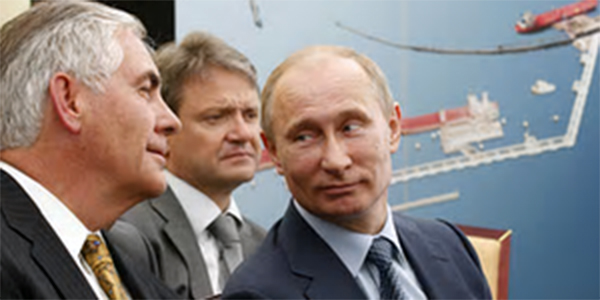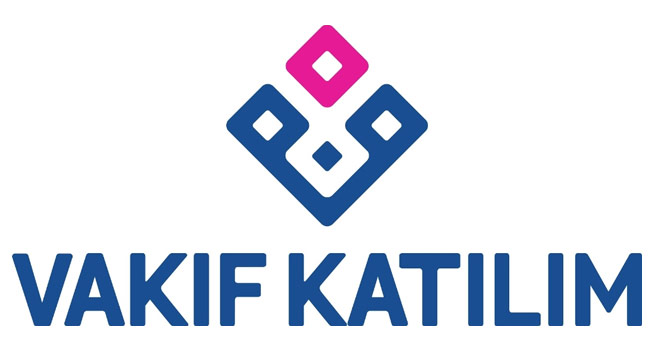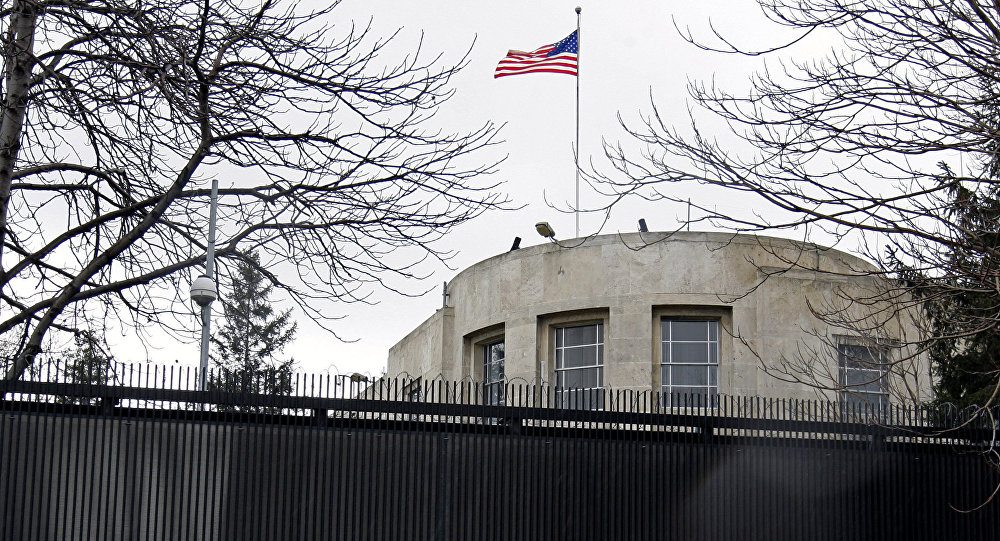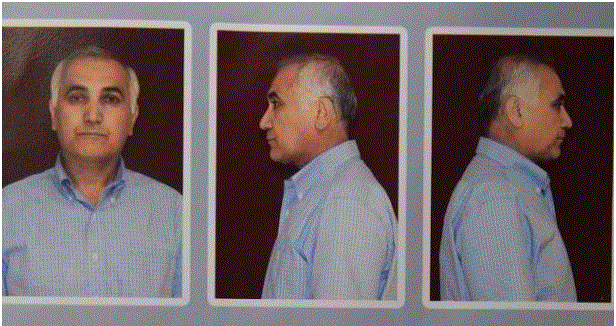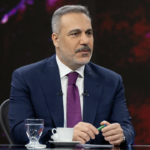Or should that be the other way around?
Andy Borowitz writes satire news in the vein of The Onion for The New Yorker. Last month he published a succinct commentary on the trend so far in Trump’s cabinet choices. The title provides the flavor: Trump Picks El Chapo to Run D.E.A. (1) As always, good satire is nearly indistinguishable from reality, and Borowitz is one of its better practitioners. And so we come to Donald Trump’s Secretary of State.
On Tuesday, after several days of intense gossiping in the American press, Donald Trump finally announced Exxon Mobil CEO Rex Tillerson as his choice. How should we understand this? The fox has been put in charge of the hen house.
For decades, the American left has decried the U.S. government’s oil-centric foreign policies. At least since the 1960s, constant focus has been put on the U.S. government’s concern about oil security and the attitude of foreign states that have large fossil fuel reserves. Indeed, the reality is that U.S. foreign policy has been affected by oil since Franklin Delano Roosevelt met Ibn Saud on a ship in the Suez Canal following the Yalta Conference (2). But countless other factors have been as important to U.S. foreign policy calculations. Oil has never been the single, overriding aim.
And over the past ten years America’s need for foreign petroleum supplies has changed dramatically as high oil prices and new technologies have pulled massive amounts of domestic U.S. underground reserves into the range of economic feasibility. Added to this has been the fast pace at which “green energy” technologies have developed and cheapened over the same time span. The upshot is that the U.S. has become largely self-sufficient in energy.
But what is Trump’s response? He appoints the CEO of the world’s largest oil company as his Secretary of State. On the one hand, I’m certainly relieved that neither the neoconservative, anti-U.N. John Bolton nor the entirely inexperienced and hysterical Rudy Giuliani ended up in command of Foggy Bottom. But Tillerson causes concern for entirely different reasons.
Foremost are the massive conflicts of interest that Tillerson represents. If Tillerson is confirmed we will never have confidence that Tillerson is working for just U.S. foreign policy. Instead, he will be dogged by concerns that his ultimate aims benefit his sector, his company, his personal oil interests (3).
That is only the broader picture. Because Tillerson is a top executive in oil, he has person-to-person relations with leaders of foreign states, often including non-democratic régimes, such as with Russia’s Vladimir Putin. In fact Tillerson, who became Exxon CEO in 2006, has been nurturing extensive, long-term ties with President Putin, so much so that Tillerson was awarded the Russian state’s Order of Friendship in 2013. Only 25 years have passed since the Cold War and the designated U.S. Secretary of State bears a medal awarded by the successors of the Soviet Union.
As of now, Trump has to gear up for a confirmation battle in Congress because even some Republicans are concerned by Tillerson’s nomination and his close relationship with Putin (4). No presidential cabinet appointee has been rejected by the Senate since 1989 (5). If Tillerson is confirmed, we then will await his first policy decisions because Tillerson has never held political responsibilities before. What his views are on American interests are a total unknown, and add to the concern about possible conflicts of interest.
Obviously, Tillerson’s relationship with President Putin will cause unease in Ankara because Tillerson will immediately be understood as friendly to Moscow, and for far more than just cordial relations between the two powers. The suspicion, until proven otherwise, will be that Tiller’s career and relationship with Moscow will color his understanding of Turkey’s region.
In connection to that point, one positive incident can be mentioned. One of the recent projects that Tillerson involved Exxon in was developing oil fields in Northern Iraq, also known as the Kurdish Regional Government (KRG). At least one report on that deal asserts that if some sort of political crisis with Baghdad occurred, Tillerson would be inclined to favor the KRG (6). If true, this is a plus for Ankara since relations with the KRG are positive, and both sides need the support of the other in the effort to roll back the PKK as well as Iranian influence over the Mosul-Latakia corridor (7). The report in question was written in early 2013, so it makes no reference to the potential politics of Tillerson’s relationship with Erbil. That will be something to ponder as Tillerson’s Congressional confirmation hearings approach.
Another interesting angle for the Turkish government is that Robert Amsterdam, retained for the effort against Fethullah Gülen in the U.S., is also the representative for Mikhail Khodorkovsky, a prominent Russian oligarch and political opponent of President Putin (8).
NOTES
(1) http://www.newyorker.com/humor/borowitz-report/trump-picks-el-chapo-to-run-d-e-a. The D.E.A., or Drug Enforcement Agency, is the U.S. government’s anti-drug administration, and has both domestic and international jurisdiction. El Chapo is a notorious Mexican drug lord currently fighting extradition to the U.S. where he faces trial on multiple federal charges.
(2) https://www.youtube.com/watch?v=FH1cUz7O7mg
(3) http://www.nytimes.com/2016/12/12/us/politics/rex-tillerson-secretary-of-state-trump.html
(4) http://www.nytimes.com/2016/12/13/us/politics/rex-tillerson-secretary-state-trump.html
(7) https://serbestiyet.com/yazarlar/ceren-kenar/pers-koridoru-kurulurken-738808
Yazıyı beğendiysen, patronumuz olur musun?
Evet, çok ciddi bir teklif bu. Patronumuz yok. Sahibimiz kar amacı gütmeyen bir dernek. Bizi okuyorsan, memnunsan ve devam etmesini istiyorsan, artık boş olan patron koltuğuna geçmen lazım.
Serbestiyet; Türkiye'nin gri alanı. Siyah ve beyazlar içinde bu gri alanı korumalıyız. Herkese bir gün gri alanlar lazım olur.




